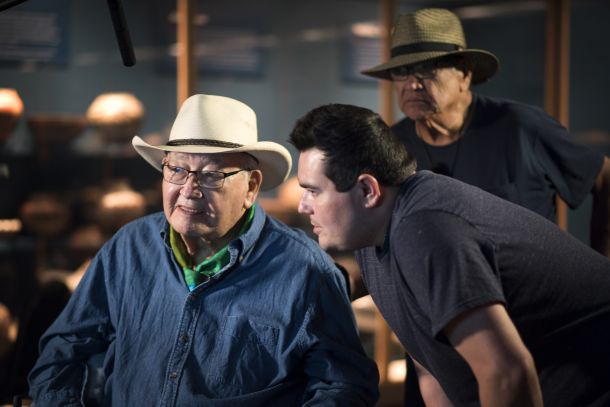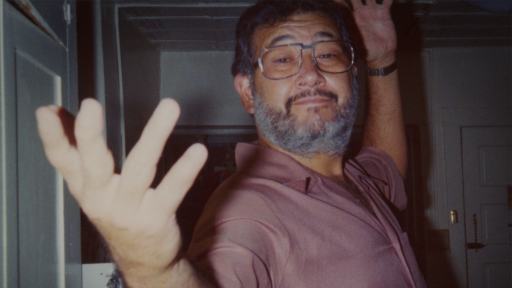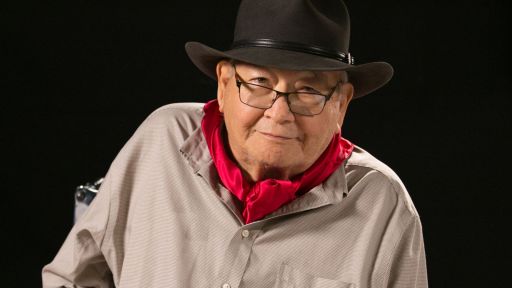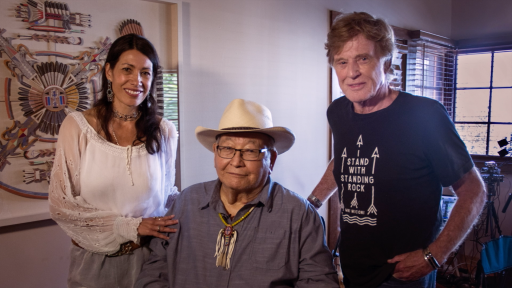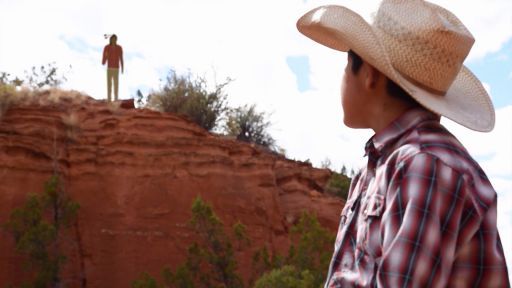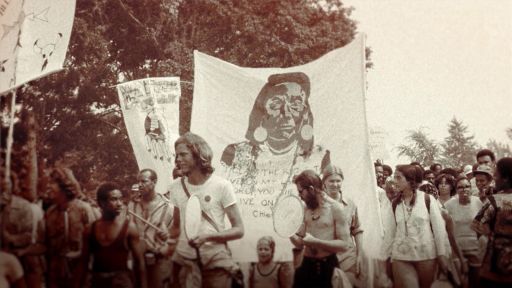Director Jeffrey Palmer reflects on the process behind “N. Scott Momaday: Words From a Bear” and Momaday’s enduring impact on Native American and Indigenous Communities.
From the beginning, we felt overwhelmed by the task of telling someone’s life story and what to include and exclude to create a cogent narrative. Our early research identified several clear editorial and production goals that would set the foundation for the structure of the film. The first goal was to understand the richness of N. Scott Momaday’s life. At the time, he was an 85 year-old Kiowa man, who was the first and only Native American author to win a Pulitzer Prize for Literature. After our preliminary research, we realized that this was just the proverbial tip of the iceberg. He in fact had won numerous accolades from literary awards, to peace prizes, to honorary doctorates. He knew a multitude of luminaries, actors and actresses, politicians, artists, musicians, and writers from around the world. Not only is he a great writer, he is also an accomplished painter and master orator. Yet, it is his connection to his Kiowa ancestry, his roots, that made his story unique and untold to the American public. The elders he interacted with as a child and who told stories to him, profoundly transformed his life into the writer he became. We wanted the PBS audience to know who these people were in Momaday’s life and tell their stories as well.
“A word has power in and of itself. It comes from nothing into sound and meaning; it gives origin to all things.”
―N. Scott Momaday, “The Way to Rainy Mountain”
Another goal we set was bringing a visual strategy to the ancient Kiowa Oral narratives and to N. Scott Momaday’s poetry and prose. Kiowa history is fused to these ancient narratives, and we wanted to be able to bring them into the contemporary history of Momaday’s life. This was essential for creating a Kiowa perspective that fully captured the essence of who Momaday was and is as a subject in history.
“We are what we imagine. Our very existence consists in our imagination of ourselves. Our best destiny is to imagine, at least, completely, who and what, and that we are. The greatest tragedy that can befall us is to go unimagined.”
– N. Scott Momaday, “The Man Made of Words: Essays, Stories, Passages”
The reportorial and creative techniques used in our film visually captured the essence of Momaday’s writings, relating each written line to his unique Kiowa-American experience, representing ancestry, place and oral history. Original animation, both digital and stop motion, was the centerpiece for bringing the ancient narratives into the contemporary narrative of Momaday’s life. We were able to work directly with the Kiowa Tribe of Oklahoma and met with Kiowa elders utilizing their artwork, Kiowa family photos, and testimonies. We dramatized scenes in Momaday’s life with live action reenactments and utilized beautiful aerials of tribal landscapes. All of this information was supported by an illustrious group of interviewees.
“And the simple act of listening is crucial to the concept of language, more crucial even than reading and writing, and language in turn is crucial to human society.”
― “House Made of Dawn”
The importance of the subject matter and the impact of N. Scott Momaday: Words from a Bear has been felt across Native American and Indigenous communities. There are few biographies directed on Native American subjects and even fewer that are directed and produced by a Native American. The film has provided Indigenous children around the world with a connection to history, language, landscape, and identity. Furthermore, non-Native audiences the film illuminates the struggles Native American peoples have faced over the centuries and has opened new dialogue on the relevance of Native American history and the importance of N. Scott Momaday in American literature.

